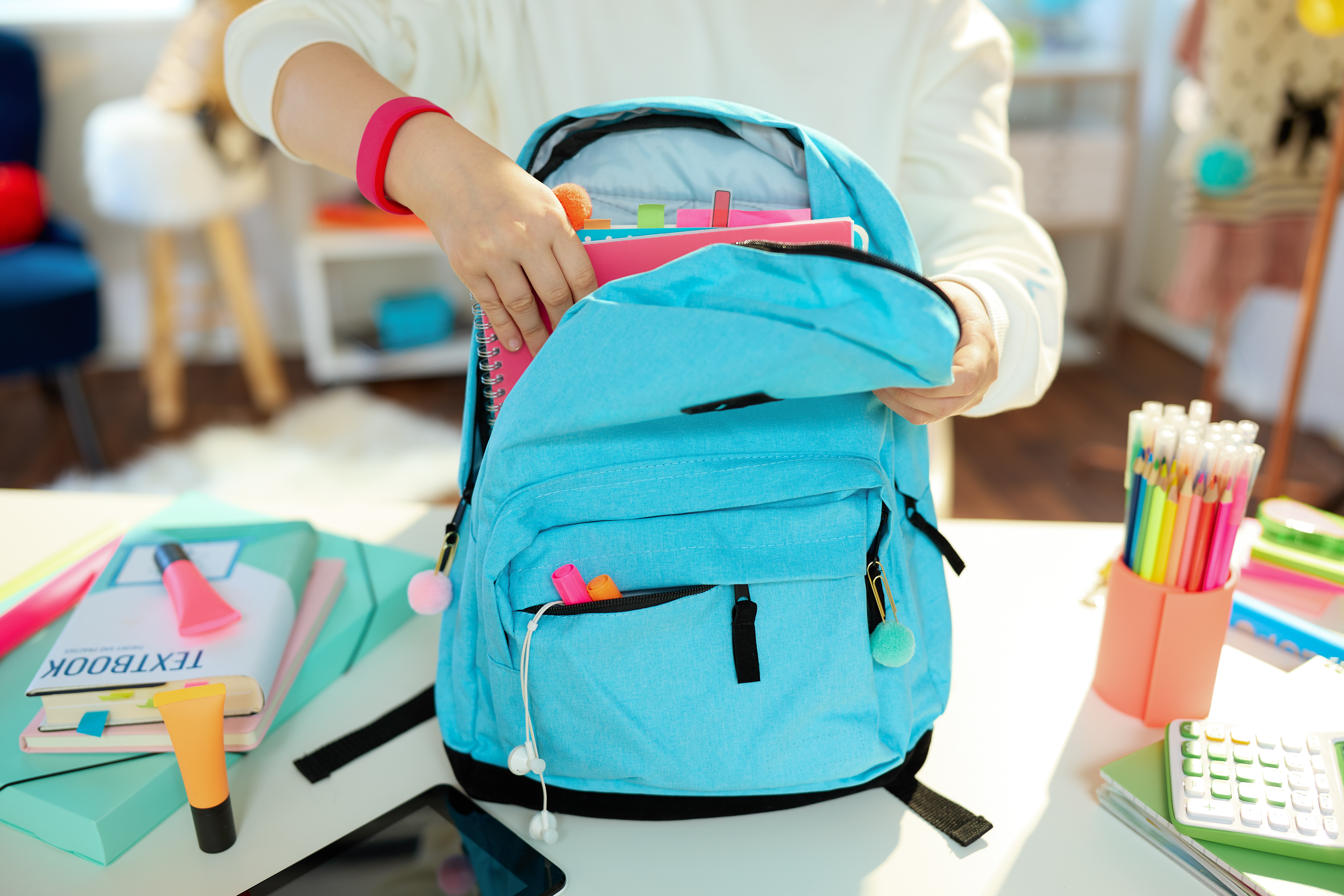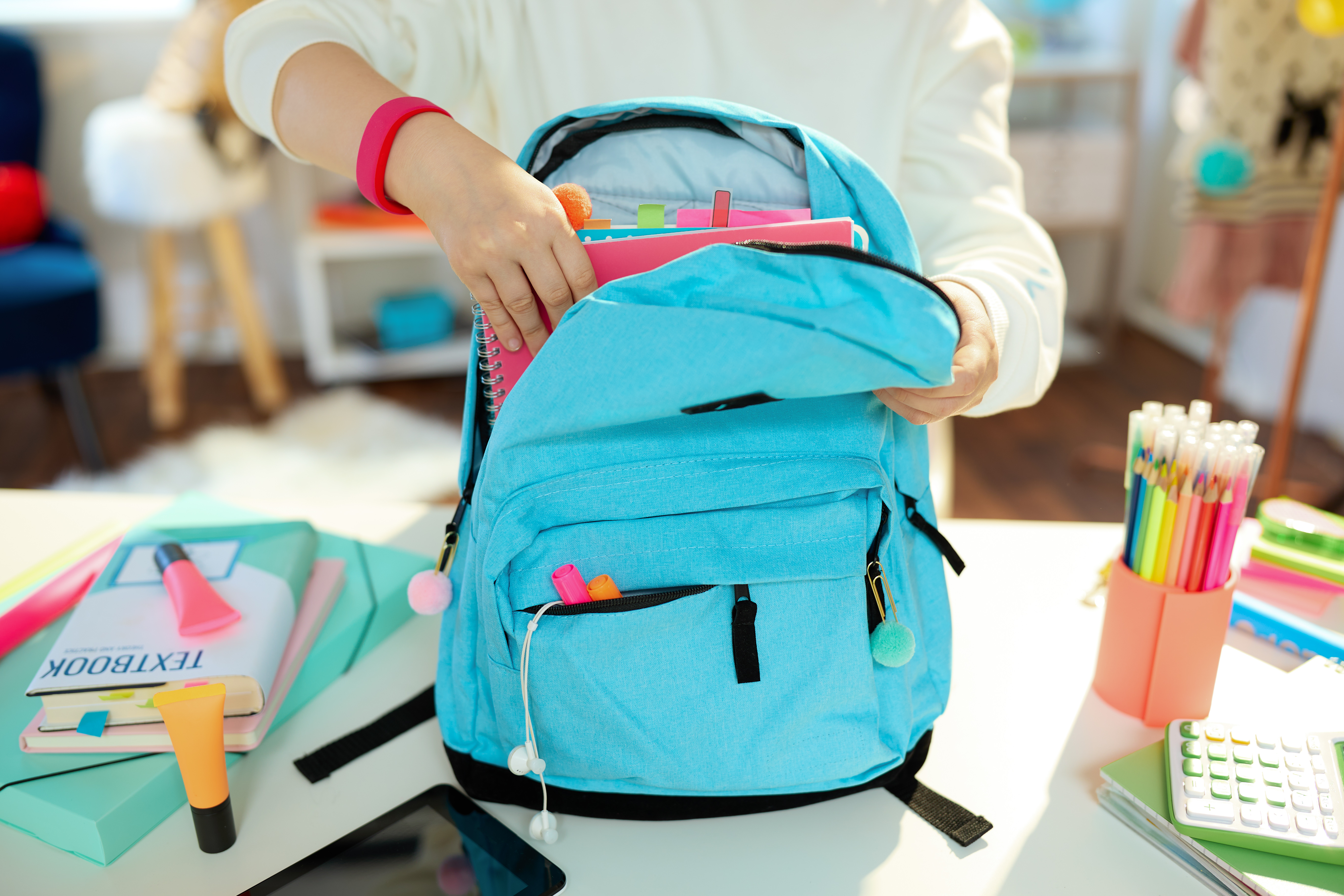As the back-to-school season arrives, parents everywhere face the challenge of transitioning from the relaxed rhythm of summer to the structured chaos of a new school year. Having an organised home makes the transition to a new school term much easier. Here are some practical tips to help you stay organised and set your family up for success this school year.
1. Create an organisation centre
This area will be the heart of your home's organisation, and where all the important life admin will be kept. It should include a family calendar, to-do lists, shopping lists, activity and chore charts, school schedules, and a bulletin board for important notices. Place it in a high-traffic area like the kitchen or the entryway so it is clearly visible and accessible to everyone in the family.
When using the family calendar, you can use colour-coded markers to distinguish between each family member's activities. This makes it easy to track appointments, after school clubs, school events, and due dates for homework. It’s also a good idea to have a few file organisers or magazine holders to store important documents such as permission slips, school forms and bills. Make sure to label everything clearly so that papers don’t get mixed up. It’s also a good idea to have a station with must-have stationery supplies such as pens, pencils, sticky notes, and scissors. This way, you can quickly fill out forms or jot down reminders without searching for supplies.
2. Designate a homework zone
A designated homework zone can help children focus on their studies without distractions. Choose a quiet spot in the house with a comfortable chair and a desk or table. Ensure the space is well-lit and stocked with all necessary supplies like pencils, paper, calculators, and a dictionary. Using organisers, bins, and trays you can keep supplies neat and accessible. Consider having a portable caddy that your child can carry to different areas of the house if needed. Additionally, if your child uses a laptop or tablet for schoolwork, set up a charging station nearby to ensure devices are always ready for use.
3. Establish a morning routine
Mornings can be chaotic, but having a consistent routine can help your family start the day smoothly. Create a step-by-step morning checklist that your children can follow. Lay out school uniforms the night before to save time in the morning.
You can also use a hanging organiser with days labelled for each school day. Make it a rule to pack school bags, complete with homework and any signed forms, the night before. Similarly, pre-pack lunches or have lunch components ready to grab and go in the morning. And for younger children, visual timers can help keep them on track without you needing to constantly remind them. Set alarms or timers to signal when it’s time to move on to the next task.
4. Organise closets and entryways
An organised closet and entryway can make a world of difference in how smoothly your family gets out the door each morning. When the kids get home from school, it’s not unusual for them to dump everything in the hallway. To help control the chaos, set up a ‘drop zone’ by the entrance of your home for shoes, coats, backpacks, and keys. Use hooks, cubbies, or baskets to store items neatly.
If you want to go the extra mile, you can label cubbies and baskets with each family member’s name to avoid mix-ups. Also, labelling clothing, lunch boxes, and school supplies will help prevent lost items at school. And when it comes to getting ready in the morning, having an organised closet can make a world of difference. Have a small, organised space in your child's closet for school shoes and planned outfits for the week. This saves time and prevents the morning rush.
5. Meal planning and preparation
A well-planned meal schedule can ease the stress of figuring out what to cook during the busy week. Set aside time each week to plan meals, including school lunches and snacks. Post the menu in your home organisation centre or stick it on the fridge for easy reference. Prepare lunches, snack bags, and even some breakfast items in advance. Pre-chopping fruits and veggies or making sandwiches the night before can save valuable time in the morning.
Don’t underestimate the power of meal prepping. Cooking large batches of dinner that can be frozen and reheated late is perfect for busy nights when you don't have time to cook from scratch. Designate a specific cupboard or shelf for all the essentials your children need for school lunches—lunch boxes, containers, bags, and water bottles. Be mindful to keep only what you truly need; if your child has outgrown any items from previous years, now is the time to declutter.
To streamline the lunch-packing process, use separate storage bins or containers in both the fridge and pantry. Group similar items together, such as fruits, snacks, and crisps, to make packing lunches quick and easy. If you want to encourage your children to participate in preparing their lunches, ensure everything is within their reach. Store lunchboxes in a lower cupboard and keep frequently used items on the lowest shelves of the pantry and fridge for easy access.
6. Use technology to your advantage
There are numerous apps available to help keep your family organised. Use digital calendars, task management apps, and reminder apps to stay on top of everyone’s schedules, which can be especially useful for older kids who prefer using their mobiles.
Apps like Google Calendar allow you to create shared calendars for the entire family, ensuring everyone is on the same page.
Task management tools are useful too. Consider using apps like Todoist or Microsoft To-Do to manage to-do lists for both parents and children. Kids can check off tasks as they complete them, providing a sense of accomplishment.
Final thoughts
Going back to school doesn’t have to be stressful. With these organisational tips, you can create a calm, efficient, and structured environment that will help your family transition into the new school year. Remember, organisation is a habit that, once cultivated, can lead to greater productivity, reduced stress, and more quality time for what matters most: family.




